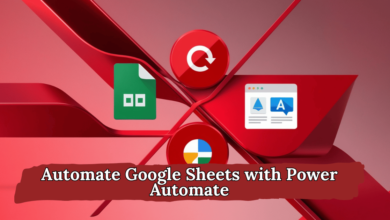
Freelancers face a unique set of challenges that require constant learning, skill development, and business management. The best way to keep up with these demands is by staying informed through trusted and valuable blogs. Whether you’re a writer, designer, marketer, or in any other freelance niche, the right blogs can offer tips on everything from productivity hacks to money management. This article will explore the best blogs for freelancers that can help you stay ahead in the ever-changing freelance market. We’ll also dive into a key question for many freelancers: Freelance Writing vs Blogging.
Let’s break down the blogs that will not only keep you updated but also provide actionable insights to level up your freelance career.
1. Freelance Life and Productivity Blogs
Freelancers Union Blog
As one of the best blogs for freelancers, the Freelancers Union Blog offers a treasure trove of insights into freelancing trends, contract management, and freelancer rights. Regularly updated with articles on healthcare, taxes, and government policies that affect freelancers, it’s a must-read for those who want to stay informed.
Zen Habits
Zen Habits is ideal for freelancers looking to simplify their work-life balance. Its minimalist approach helps you eliminate distractions and stay focused, crucial for freelancers managing multiple clients and projects. Topics cover productivity, mindfulness, and habit-building, making it one of the best blogs for freelancers who need to boost efficiency.
Lifehacker
Lifehacker is packed with practical tips to improve daily routines and work processes. Freelancers can find everything from time management hacks to software tools that streamline their work. It’s one of the most well-rounded productivity blogs with tips applicable to freelancers across industries.
2. The Best Blogs for Freelancers: Marketing and Business Growth Blogs
Neil Patel’s Blog
If you’re serious about growing your freelance business, Neil Patel’s blog is essential. He covers digital marketing strategies, including SEO, social media marketing, and lead generation—skills that freelancers need to market their services. The blog offers detailed guides and case studies, making it a comprehensive resource for freelancers who want to attract more clients and build a sustainable business.
Copyblogger
Copyblogger is one of the best blogs for freelancers focused on writing, especially those interested in content marketing. It provides actionable advice on creating persuasive copy, generating leads through content, and honing your writing skills. If you’re a freelance writer, the insights on SEO and copywriting will enhance your ability to create compelling content for clients.
Smart Passive Income
Smart Passive Income, run by Pat Flynn, teaches freelancers how to diversify their income streams and build passive revenue models. Whether through affiliate marketing, creating online courses, or building an audience via podcasting, this blog offers strategies to increase financial independence for freelancers.
3. Freelance Writing vs Blogging: Which is Better?
Freelancers often ask, Freelance Writing vs Blogging—what’s the difference and which is more profitable? Let’s break it down.

Freelance Writing
Freelance writing typically involves creating content based on client requests. These projects can range from articles, press releases, and white papers to product descriptions and social media posts. As a freelance writer, you may not have much creative control, but you get paid for the specific pieces you create.
Blogging
Blogging, on the other hand, allows for more creative freedom, especially if you run your own blog. It can be monetized through ads, affiliate marketing, or selling products. The potential for passive income makes blogging attractive, but it often takes longer to build a profitable blog compared to freelance writing gigs that pay upfront.
Which Should You Choose?
The answer depends on your goals. If you want quicker payments and enjoy working on varied writing projects, freelance writing might be the way to go. However, if you’re looking to build a personal brand or an online presence that can eventually lead to passive income, blogging is a better long-term strategy.
4. Financial Management Blogs for Freelancers
The Balance – Freelance Finance Section
This blog covers a wide range of topics to help freelancers manage their income, save for taxes, and plan for financial stability. The Balance’s freelance finance section is particularly useful for freelancers dealing with irregular income. It offers practical tips on budgeting, retirement planning, and handling freelance taxes.
Millo.co
Millo.co is one of the best blogs for freelancers who need to learn the business side of freelancing. It covers invoicing, getting paid on time, and managing your financial health. Their practical guides on scaling your freelance business and ensuring steady cash flow are essential for long-term success.
QuickBooks Blog
QuickBooks provides freelancers with the tools to handle invoicing, expenses, and taxes. Their blog offers in-depth guides on how to use financial software, making it easier for freelancers to stay organized and avoid financial pitfalls.
5. Client Relationship and Networking Blogs
The Creative Independent
The Creative Independent offers deep insights into the emotional and practical sides of freelancing. Articles about setting boundaries, managing client relationships, and handling creative burnout are perfect for freelancers navigating difficult projects and demanding clients.
Clients From Hell
A humorous yet highly informative blog, Clients From Hell shares stories of bad client experiences along with tips on how freelancers can protect themselves from similar situations. This blog teaches you how to create airtight contracts and set clear expectations with clients.
FreelanceFolder
FreelanceFolder focuses on networking and finding new clients. It offers interviews with successful freelancers, tips on crafting the perfect pitch, and advice on building long-lasting client relationships. It’s one of the best blogs for freelancers who are looking to grow their client base and expand their business.
Check Also: Top 10 Best Blogging Hosts of 2024: Why They Stand Out (Pros & Cons)
6. Freelance Tools and Resources
Freelancer FAQs
Freelancer FAQs answers common questions freelancers encounter, from how to handle client contracts to choosing the right invoicing software. It’s a useful resource for new freelancers still figuring out the ins and outs of freelance life, as well as experienced freelancers looking for advanced tips.
Hubstaff Blog
Hubstaff’s blog is packed with advice on time management and project tracking, ideal for freelancers managing multiple projects simultaneously. It covers tools and software recommendations to help streamline your workflow and maximize productivity.
7. Personal Development and Mental Health Blogs
Tiny Buddha
Freelancing can be stressful, and Tiny Buddha offers freelancers helpful tips on managing stress, practicing mindfulness, and achieving a healthy work-life balance. It’s a great resource for those who want to prioritize their mental health while navigating the challenges of freelancing.
The Positivity Blog
For freelancers who face creative blocks or self-doubt, The Positivity Blog encourages personal growth through articles on motivation, self-discipline, and overcoming challenges. It’s one of the best blogs for freelancers focused on self-improvement.
FAQs about The best blogs for freelancers
What are the best blogs for freelancers?
The best blogs for freelancers include Freelancers Union, Zen Habits, Neil Patel’s blog, and Millo.co. These blogs cover productivity, marketing, finance, and personal development, all crucial for freelancers.
How can blogs help freelancers succeed?
Blogs provide freelancers with valuable advice on client management, financial stability, productivity, and marketing. They keep freelancers informed about industry trends and offer practical tips to improve their business.
Freelance Writing vs Blogging: Which is more profitable?
Freelance writing offers faster payments but less creative freedom, while blogging has the potential for passive income but requires more time to become profitable.
What tools do freelancers need?
Freelancers need tools like invoicing software, time trackers, and project management platforms. Blogs like Hubstaff and Freelancer FAQs can help you choose the right tools for your business.



